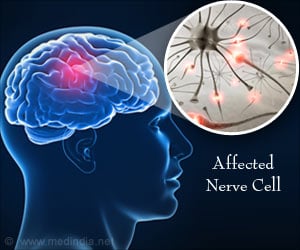
‘Explosive anger outbursts cause impairment of your thinking capacity taking a toll on social interactions’
Tweet it Now
The SLF connects the frontal lobe - responsible for decision making, emotion and understanding consequences of action - with parietal lobe that processes language and sensory input. The lead author of the study, Royce Lee, Associate Professor at University of Chicago said, “It’s like an information superhighway connecting the frontal cortex to the parietal lobes.”. “We think that points to social cognition as an important area to think about for people with anger problems," Lee added.
Connectivity is a critical issue because the brains of people with psychiatric disorders usually show very few physical differences from healthy individuals. "It's not so much how the brain is structured, but the way these regions are connected to each other," Lee said.
In the study that was published in the journal Neuropsychopharmacology , researchers have used diffusion tensor imaging a form of magnetic resonance imaging that measures the volume and density of white matter connective tissue in the brain.
The study states that people with anger issues are not merely displaying “bad behavior”. There is a genuine biological basis that can be studied and treated.
Advertisement
Source-Medindia










